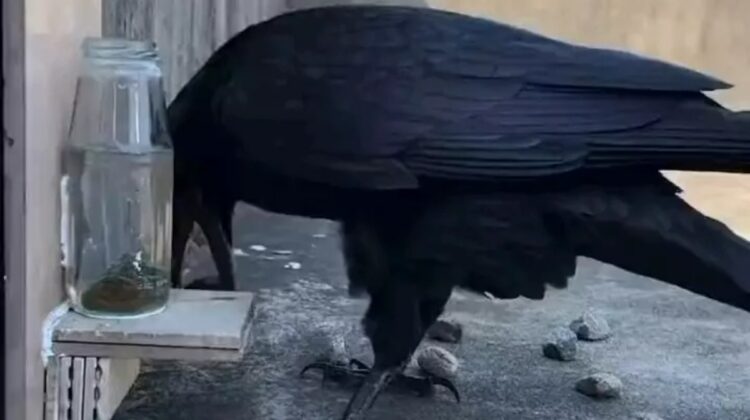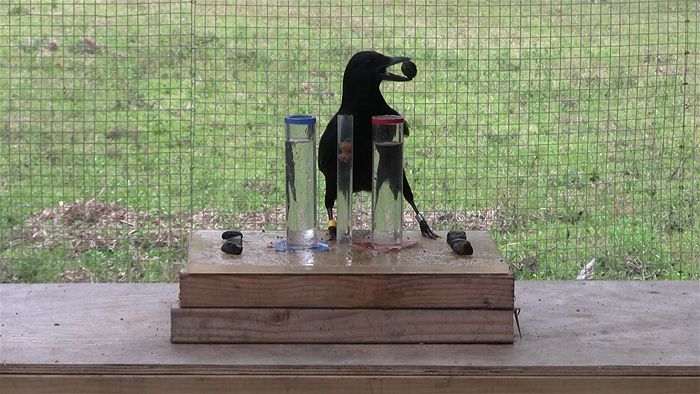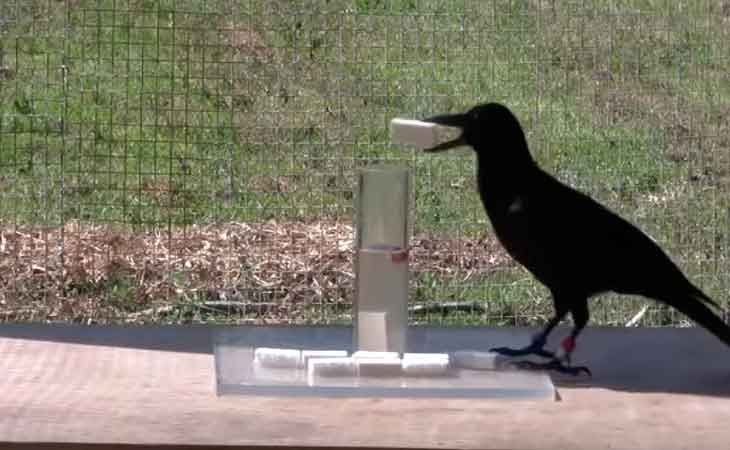
In the realm of avian intelligence, New Caledonian crows have once again proven themselves as remarkable thinkers, with reasoning abilities matching those of seven-year-old humans, according to a study conducted by researchers.
The study involved subjecting six wild New Caledonian crows to a series of tests specifically designed to challenge their comprehension of causal relationships. Inspired by Aesop’s fables, the “water displacement” tasks presented to the crows aimed to assess their problem-solving skills and understanding of cause and effect.
In these experiments, the crows demonstrated a keen ability to navigate challenges, figuring out how to obtain floating food rewards by strategically dropping heavy objects into water-filled tubes. The tasks required the crows to distinguish between sinking and floating objects, as well as solid and hollow items. Additionally, the birds showcased the capacity to choose a tube with a high water level over one with less water, and a water-filled tube over one filled with sand.
While the crows excelled in these tests, they encountered difficulties with two more complex tasks—one involving an understanding of tube width and the other requiring water displacement in a U-shaped tube.

Lead researcher Sarah Jelbert from the University of Auckland emphasized the significance of the crows’ performance, stating, “These results are striking as they highlight both the strengths and limits of the crows’ understanding.” She noted that while the crows struggled with tasks that violated normal causal rules, their success in other tasks suggested a notable level of causal understanding.
The intelligence of New Caledonian crows has long been celebrated, and they are renowned for their inventive problem-solving skills. Living on the Pacific islands after which they are named, these crows are the sole non-primate species known to craft tools, using sticks and hooks to extract grubs from logs and branches.

The findings from this study not only shed light on the cognitive prowess of New Caledonian crows but also underscore the intricate nature of their understanding of cause and effect, placing them on par with the reasoning abilities of seven-year-old humans. As our understanding of animal intelligence continues to evolve, these avian thinkers stand out as compelling subjects, challenging preconceived notions about the cognitive capacities of non-human species.

Leave a Reply